When it comes to weight loss, it’s not just about cutting calories, it’s also about making nutritious choices that support your overall health. And when it comes to nutritious foods, salmon is a top contender.
Not only is it delicious and versatile, but it’s also packed with health benefits that can help you reach your weight loss goals. Thus, the question arises: Is salmon good for weight loss? The answer is a resounding yes. In this article, we’ll explore the many ways in which salmon can aid your weight loss journey and guide you on integrating it effectively into your diet.
Related articles
- Are Radishes Good for Weight Loss? The Surprising Truth.
- Is Watermelon Good for Weight Loss? The Slimming Truth!.
- Are Pickles Good for Weight Loss? Can We Eat Them Everyday?.
1. Is Salmon Good for Weight Loss?
Adding salmon to your diet can help with losing weight, but it’s not the only thing you need to do.
Salmon is a good source of protein, which is great for keeping you full longer. This means you might end up eating less overall. Also, salmon has omega-3 fatty acids, good fats that can help balance your blood sugar. This might make you less likely to crave sweet or starchy snacks.
But just eating salmon won’t make you lose weight on its own. To lose weight, you have to use more calories than you eat. So, while salmon is a healthy food that adds good nutrients to your meals, you still need to watch how much you eat and keep an eye on your total calories.
Eating salmon as part of a diet that’s well-rounded, along with regular exercise and watching your calorie intake, can help you reach your weight loss goals.
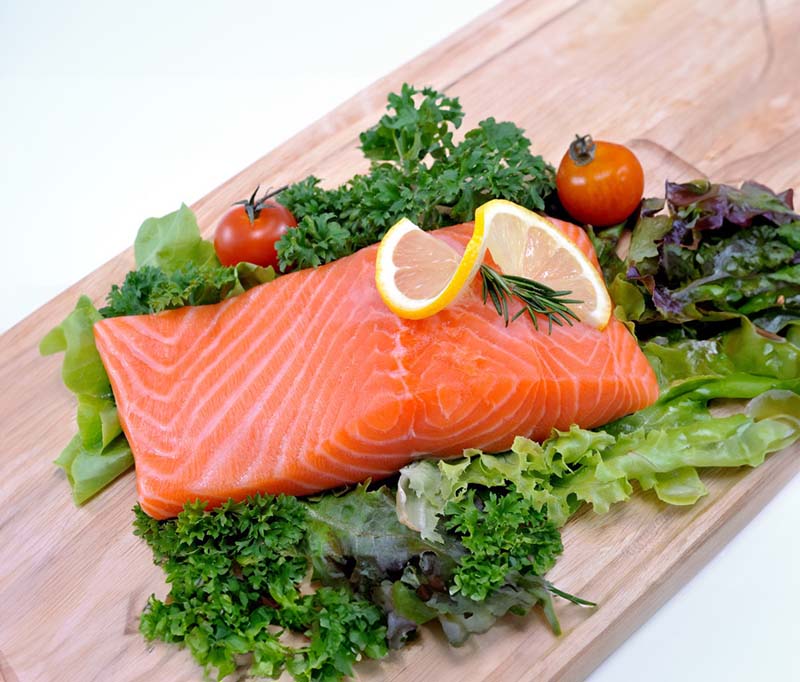
2. Salmon Effects on Weight Loss
While salmon is often categorized as a fatty fish, it’s actually quite suitable for a weight loss diet. Is salmon healthy for weight loss? Definitely, as it provides essential nutrients without excessive calories.
Despite its label, salmon is surprisingly moderate in calories, offering just over 200 calories per serving. But it’s crucial to remember that successful weight loss is not solely about counting calories. The aim should be to maintain a balanced diet that promotes overall health. Salmon is a powerhouse of nutrition, offering not just protein but also omega-3 fatty acids and a variety of other nutrients essential for good health. By including salmon in a diverse weight loss meal plan, you can benefit from its nutritional value while progressing towards your weight loss objectives. Utilizing a reliable meal delivery service that focuses on weight loss can help you easily incorporate salmon into your diet, making your journey both effective and sustainable over time.
Besides its reasonable calorie count, salmon’s high protein content makes it an ideal choice for those looking to lose weight in a healthy and sustainable way.
3. Salmon Nutrition Facts
The nutritional profile of salmon varies slightly between farmed and wild-caught varieties. Farmed salmon tends to have more healthy fats and calories, while wild-caught salmon generally boasts higher protein content.
Regardless of the type, salmon is an excellent source of several key nutrients, including selenium, phosphorus, and various B vitamins.
Here’s a breakdown of the nutritional content in a 3.5-ounce (100-gram) serving of cooked wild and farmed salmon:
Wild Salmon:
- Calories: 182
- Protein: 25 grams
- Fat: 8 grams
- Vitamin B12: 127% of the Daily Value (DV)
- Vitamin B6: 56% of the DV
- Selenium: 85% of the DV
- Niacin: 63% of the DV
- Pantothenic Acid: 38% of the DV
- Thiamine: 23% of the DV
- Phosphorus: 21% of the DV
Farmed Salmon:
- Calories: 206
- Protein: 22 grams
- Fat: 12 grams
- Vitamin B12: 117% of the DV
- Vitamin B6: 38% of the DV
- Selenium: 75% of the DV
- Niacin: 50% of the DV
- Pantothenic Acid: 30% of the DV
- Thiamine: 28% of the DV
- Phosphorus: 20% of the D
Salmon is particularly rich in selenium, a vital nutrient involved in DNA synthesis, thyroid hormone metabolism, and reproductive health.
It’s also an outstanding source of omega-3 fatty acids, beneficial fats that are good for the heart, can reduce inflammation, and support brain health.
Moreover, salmon is abundant in vitamin B12, essential for producing red blood cells and maintaining the health of the central nervous system.
4. Advantages of Salmon for Health
Salmon is a powerhouse of health benefits, making it a top choice for anyone looking to boost their overall wellness.
Excellent Omega-3 Fatty Acid Source
Salmon is among the best sources of omega-3 fatty acids EPA and DHA. A 3.5-ounce serving of salmon provides about 2.3 grams of these essential fats, which are crucial since your body can’t make them.
These fats are known for their role in reducing inflammation, lowering blood pressure, cutting cancer risk, and improving arterial health. Studies have shown that consuming omega-3s from fish is more effective than taking supplements and eating at least two servings of salmon per week can help meet your omega-3 needs.
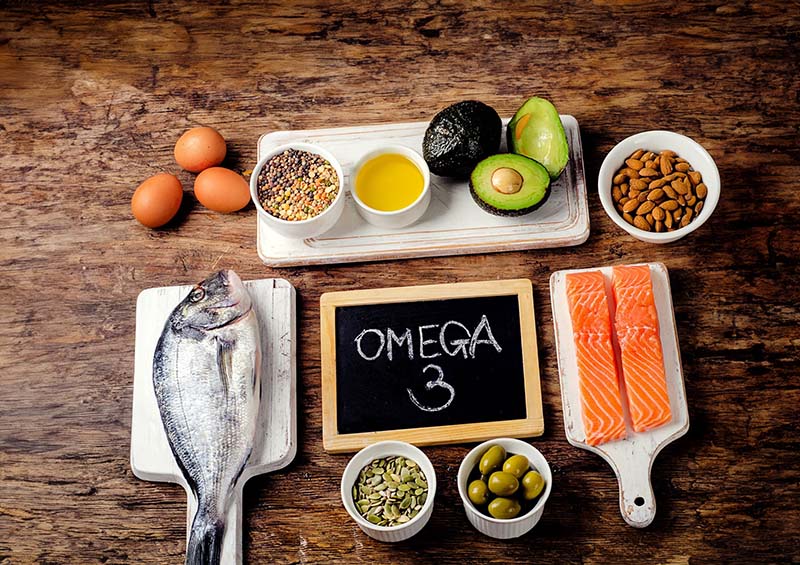
High-Quality Protein Provider
Salmon is also a rich source of high-quality protein, providing 22–25 grams per 3.5-ounce serving. Protein is vital for healing, bone health, and maintaining muscle mass, especially during weight loss and aging. It’s recommended to consume 20–30 grams of protein per meal for optimal health.
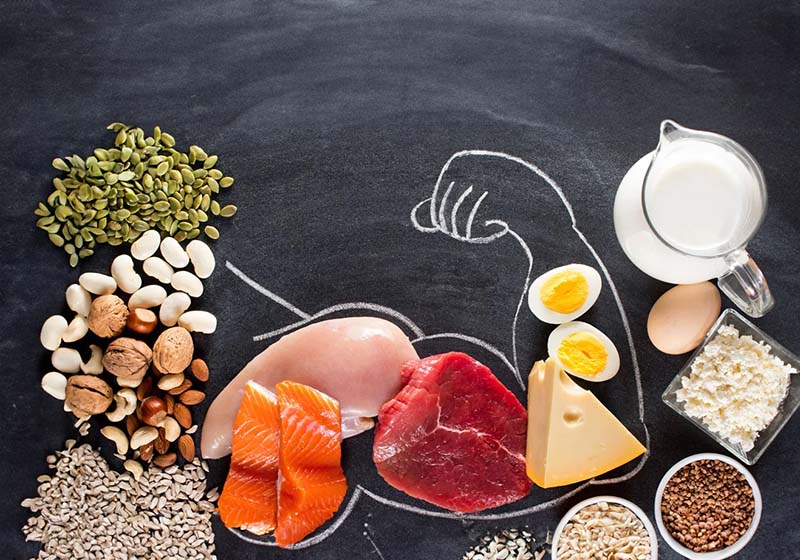
Possesses Antioxidant and Anti-inflammatory Qualities
The omega-3 fats in salmon, along with a compound called astaxanthin, give salmon strong antioxidant and anti-inflammatory properties. Astaxanthin, which gives salmon its pink color, helps protect against oxidative and inflammatory damage.
Facilitates Weight Loss
Regular consumption of salmon can aid in weight loss. Its high protein content helps regulate appetite hormones and increases metabolic rate after eating. Omega-3 fats in salmon, combined with an active lifestyle, may promote weight loss and reduce belly fat. Studies have also shown DHA, a primary omega-3 in salmon, to be effective in reducing liver and belly fat.
Abundant in Micronutrients
Salmon is not only beneficial for its protein and fats but also for its micronutrients. It’s particularly high in vitamins B and selenium, an important antioxidant.
Convenient Option
Beyond its health benefits, salmon is delicious, versatile, and easy to prepare. It can be cooked in various ways and is even great raw in sushi. Canned salmon is a quick, affordable option that still offers the same health benefits as fresh fish. In most parts of the world, salmon is both accessible and affordable, considering the myriad of health benefits it provides.
5. How Often Should You Eat Salmon for Weight Loss?
The right amount of salmon for weight loss can differ based on individual factors like your daily calorie requirements, overall diet, and personal taste preferences. As a general rule, it’s recommended to have 2-3 servings of fish each week, with salmon being a great option.
Each serving should be about 3-4 ounces (85-113 grams) of cooked salmon. This portion size gives you a good balance of protein and healthy fats without going overboard on calories. It’s important to include a variety of other nutritious foods in your meals to ensure your weight loss plan is both balanced and mindful of calorie intake.
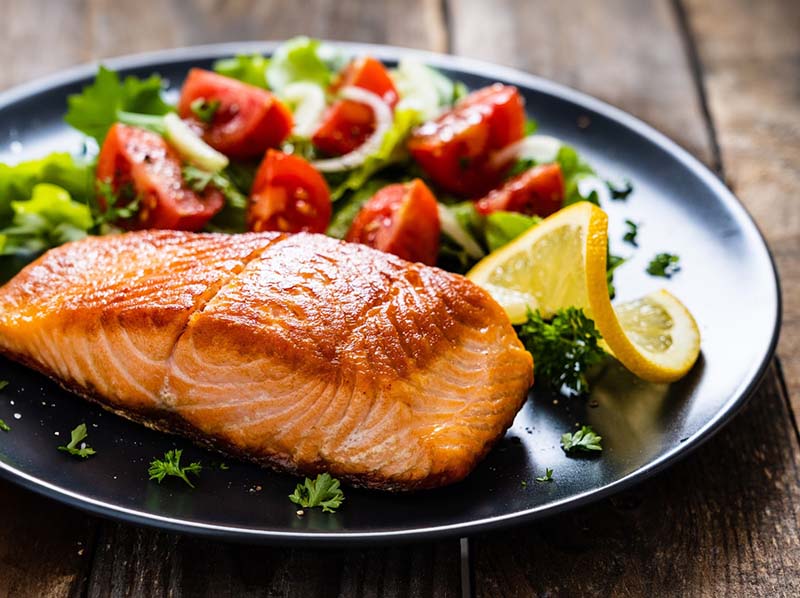
6. Are There Any Adverse Effects of Consuming Excessive Salmon?
While salmon is generally a healthy choice, consuming it in excessive amounts can lead to potential negative effects. One concern is the presence of mercury and other pollutants, which tend to be higher in larger and older fish. Eating too much salmon can result in the accumulation of mercury in the body, potentially causing health issues.
Another issue is related to farmed salmon, which may have higher levels of contaminants like PCBs compared to their wild counterparts. Additionally, overconsumption of salmon might lead to an imbalance between omega-3 and omega-6 fatty acids in your diet.
To minimize these risks, it’s crucial to consume salmon in moderation. Opting for wild-caught salmon or responsibly farmed salmon can also help reduce the intake of pollutants and maintain a healthier balance of nutrients.
7. Is Canned Salmon Good for Weight Loss?
Canned salmon is indeed a viable option for weight loss, as it contains as much protein as fresh salmon. Protein is a key nutrient for weight loss, helping to keep you feeling full and satisfied, which can lead to eating fewer calories overall.
While canned salmon is a good source of omega-3 fatty acids, it’s important to note that the levels of these healthy fats can vary. This variation is due to the natural differences in the muscle tissue of the salmon. Additionally, the process of canning salmon involves heat, which can result in the loss of some micronutrients. Therefore, certain canned salmon products might be slightly less beneficial for weight loss compared to fresh salmon.
However, canned salmon still offers significant nutritional value and can be a convenient and cost-effective way to include healthy protein and omega-3 fatty acids in a weight loss diet. When choosing canned salmon, opting for varieties with lower sodium content and without added oils or sauces can make it a healthier choice.
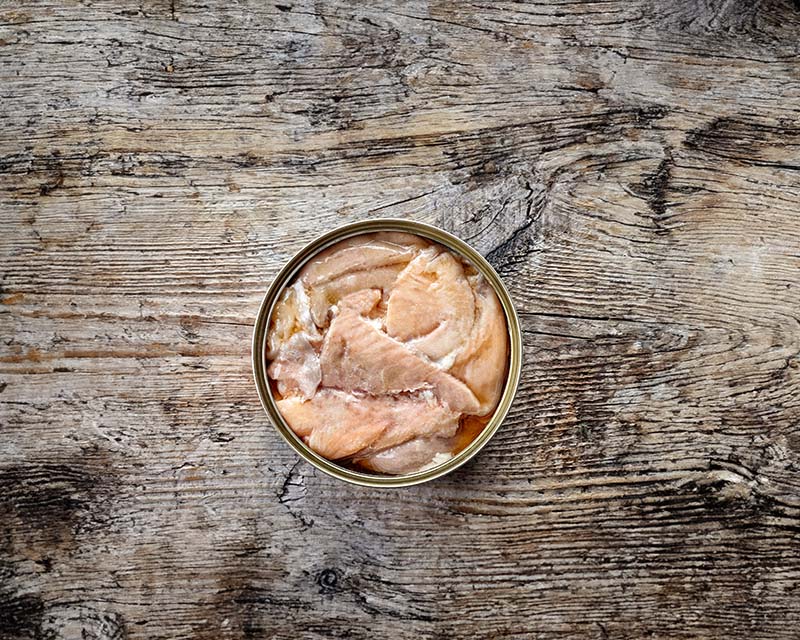
Conclusion
In conclusion, salmon emerges as a powerful ally in the journey of weight loss. Rich in essential nutrients and beneficial omega-3 fatty acids, it not only supports a healthy diet but also contributes significantly to weight loss goals. We hope this blog has provided valuable insights into why salmon is good for weight loss and how it can be incorporated into your diet for maximum benefits.
Highlighting the main keyword, “is salmon good for weight loss“, we aim to underscore the effectiveness of this nutritious fish in your dietary plans. We’d love to hear your experiences and success stories involving salmon in your weight loss journey. Don’t forget to explore more health and nutrition blogs at HealthConnect for more tips and insights into a healthier lifestyle. Join us in the conversation and share how salmon has made a difference in your health journey!
Source:
fdc.nal.usda.gov
ncbi.nlm.nih.gov
pubmed.ncbi.nlm.nih.gov
hsph.harvard.edu
ods.od.nih.gov

Dr. Joyce Slater: Your Guide to Informed Health Choices
Dr. Joyce Slater shines as a distinguished expert in the field of nutrition and public health. Contributing her vast expertise to HealthConnectbc, she embodies a deep-seated passion for enhancing public well-being. As a respected figure in her field. Dr. Slater’s academic journey and professional achievements are nothing short of inspirational.
Holding a significant position as a researcher and educator, Dr. Slater has delved deeply into the intricacies of food literacy and nutritional science. Her work, prominently featured in numerous esteemed scientific publications, underscores her dedication to expanding our understanding of food’s role in health and society.
At the heart of Dr. Slater’s professional ethos is a profound desire to positively impact individual lives through education and research. She often says, “Empowering people with the knowledge to make healthier choices is the most rewarding aspect of my work.” This principle is the cornerstone of her involvement with HealthConnectbc, where she strives to provide reliable and practical health advice.
Dr. Slater’s contributions to HealthConnectbc are multifaceted: academically, she offers insights into the complex world of nutrition and health, enhancing both public understanding and professional practices. Additionally, she is instrumental in guiding and inspiring the next generation of health professionals, thus fostering future excellence in the field.
Juggling rigorous research with her educational duties, Dr. Slater demonstrates an unwavering commitment to her profession. Her approachable nature and genuine concern transcend the confines of academia, touching the lives of everyone she interacts with. Dr. Slater looks forward to continuing her journey of discovery and education, dedicated to the ongoing improvement of public health and nutrition.
At HealthConnectbc, Dr. J. Slater is not just a contributor; she is a guiding light, dedicated to enlightening and motivating individuals towards a healthier and more informed lifestyle.
PUBLISHED ARTICLES
- Food literacy competencies: A conceptual framework for youth transitioning to adulthood (2018)
- Self-perceived eating habits and food skills of Canadians (2016)
- Challenges to acquiring and utilizing food literacy: Perceptions of young Canadian adults (2016)
- Socio-demographic and geographic analysis of overweight and obesity in Canadian adults (2009)
- Sustainable well-being: Concepts, issues, and educational practices (2014)

